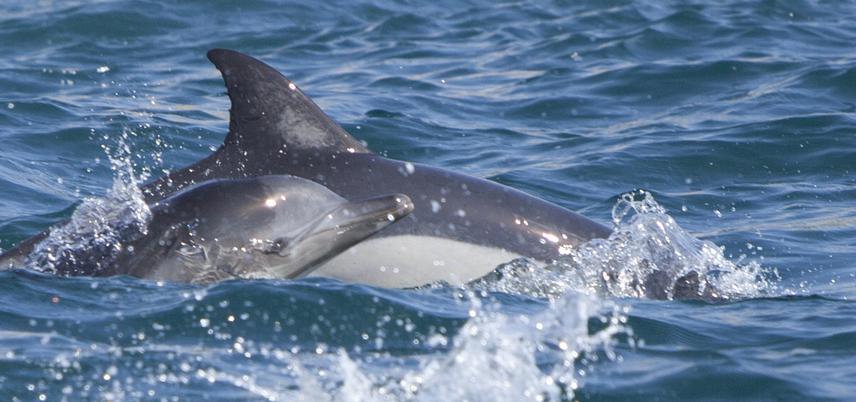Aylin Akkaya
Other projects
2 Mar 2017
Towards Ecosystem Based Management of Marine Mammals in the North-Western Levantine Sea
8 Jan 2019
Advancing Knowledge from Coastal to Pelagic for "Species Conservation Action Plan of Turkey": A Tool to Prioritise Measures against Population Decline
16 Dec 2020
Using Scientific Knowledge to Strengthen Management and Conservation Strategies for Cetaceans within the Turkish Mediterranean Sea
18 Apr 2023
Long-Term Conservation of Cetaceans in the Eastern Mediterranean Sea of Turkey
The project aims to fulfil the knowledge gaps and to identify the important habitats and major threats on cetaceans through combining research and education within the Special Environmental Protected Area (SEPA) Fethiye-Göcek, Turkey.

editerranean cetaceans are classified either at risk or data deficient and subjected to anthropogenic threats, mainly habitat degradation, prey depletion, by-catch, vessel traffic, pollution. Despite the importance of cetaceans in marine ecosystem, there is a lack of research effort within the Eastern Mediterranean Sea. This project not only aims to fulfil the knowledge gaps on cetaceans through estimating distribution and abundance rate, initiating the first photo-ID catalogue, identifying important habitats and major threats within the Special Environmental Protected Area Fethiye-Göcek; but also to raise the public awareness through ensuring the active involvement of fishermen, boat crews and children.
This project will identify spatial and temporal cetacean abundance and distribution rate. Important habitats as in feeding and resting will be mapped and major threats on their survival will be identified within Fethiye-Göcek SEPA. Moreover, residency patterns of frequently sighted cetaceans will be analysed through conducting a photo-ID study.
Its known that local populations and tourists show an high interest on the protection of Fethiye ecosystem. Since fishermen-dolphin interactions are detrimental for both sides and tourist boats can reach very large amount of people, they will actively joined into the project as a "citizen scientists" for directing their opinions towards the nature protection and how having a healthy ecosystem will increase their profit.
The first photo-ID catalogue of the area will be initiated with the direct participation of scientists, fishermen and tourist boats' crews. Later on, the photo-ID catalogue will be integrated within a larger Turkish Mediterranean Photo-ID database which will be used to define the residency pattern and spatial and temporal individual ranges of cetaceans.
We also aim to provide hands on science experiences for children, who were raised in sexually and physically abused environments. Psychologists state that animals have an educational and motivational effect on children that are abused. Therefore, one of the major goals of this project is to improve the children’s social, emotional, or cognitive functioning. Our project will help them to have self-esteems. They will be inspired and motivated which will help them to gain their self-confidence that will hopefully provide them different alternatives and show them new paths they can take.